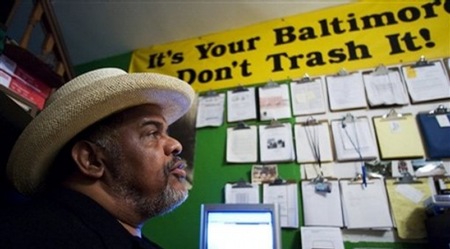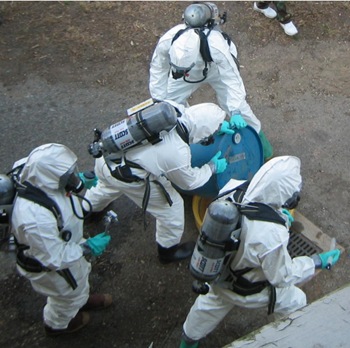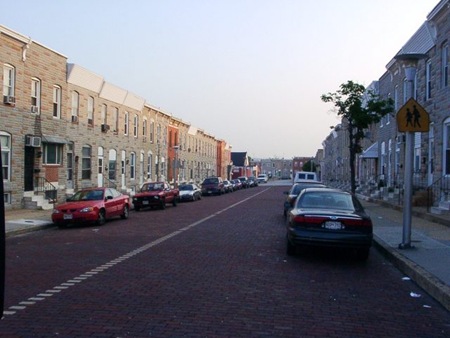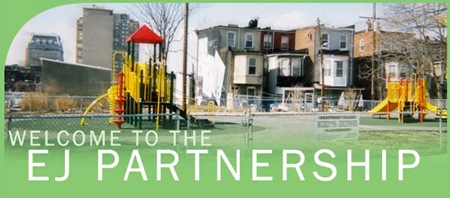1006 Morton Street
Baltimore, MD 21201
410.576.9131 | RW1haWw=
August 14 2008
Environmental Racism: Baltimore's Toxic Tour by Urban Environmentalist Glenn Ross
Baltimore has a vocal champion for urban environmental issues. His name is Glenn Ross and he has only recently embraced the label of 'environmentalist.'
You see, Mr. Ross had spent the previous 20 years dealing with sanitation, public health and decent housing as a community activist on the behalf of his East Baltimore community (and other similarly distressed Baltimore neighborhoods). Working on the streets of Baltimore these 'urban' issues probably seemed distant from the 'ecological' topics being discussed by most prominent 'environmental' groups at the time. To quote Mr. Ross, "When I used to hear the word environment .... I used to think of mountains and bears." That sentiment, an association between environmentalism and natural ecology, is easy to understand, especially when considering the absence of unspoiled 'nature' in the Baltimore urban environment. Consider the context and it is easy to see how 'environmentalism' falls way behind poverty, crime, and education on the list of priorities within a struggling community.
For Glenn however, the connection between 'urban activism' and 'environmentalism' was planted at a very young age. In a grim forecast of his work to come, he recalls a memory of the soil pollution present in one East Baltimore cemetery:
"They planted this area with African ferns and sunflowers to remediate it. Of course we didn?t know it back then, but the African ferns absorbed the arsenic in the ground, and the sunflowers were there to absorb the lead. We used to pick those sunflowers and take them home and eat them. There was no warning, no sign. Nothing. Then a couple years later the city sent in all these guys in hazmat suits to harvest the stuff.?
Certainly a reality check for anyone not aware of the pollution present within the confines of American cities or of the potential for 'Environmental Racism' (as described by Mr. Ross). These experiences with pollution in his neighborhood eventually led to Mr. Ross creating what is known as 'Baltimore's Toxic Tours' whereby visitors are taken 'round the city to see how the environment affects the community, sometimes very disproportionately depending on your location.
For Mr. Ross the word 'environmentalist' entered the picture when he started working with the B'more Green and Environmental Justice Partnership projects. The connection in his mind is that everyone is concerned about their own health and that of their close family and friends, their community. Once he made the connection that toxic soil, lead, pests, trash, and air and water pollution were affecting the health of residents he became and environmentalist. The leap from community activist to environmentalist may seem obvious now, but connection was not that clear given the circumstances. Interestingly, it was probably a lifetime in the making for Mr. Ross.
I have to confess ignorance of 'environmental racism' just around the corner from my house. I heard Mr. Ross speak today, and I am grateful to him for bringing these issues to my attention and showing me that decisions I make as a designer and architect can and will have a significant impact on the lives of urban residents. Crucially, the debate forced me to broaden my definition of 'environmentalism' and 'sustainability', always a good thing.
Below is a video documentary of the Toxic Tour Mr. Ross gives in Baltimore.
For more information please read Baltimore Urbanite magazine's recent article titled "The Changing Face of Environmentalism," which highlights the work of Mr. Ross. You can find out more about the Environmental Justice Partnership on their website.
Recent Posts
Reimagining Harborplace to Create Space for Both Private Development and Expanded Public Space » Lawyer's Mall Reconstruction Progress » Confronting the Conventions of Customary Practice » Reconceived Facades: New Roles for Old Buildings » Ivy Bookshop Opens for Business! »
Categories
Yellow Balloon Baltimore » Products + Technology » Industry + Practice » Other » Architecture »
Links
Organizations
- USGBC Baltimore Regional Chapter »
- AIA - American Institute of Architects »
- USGBC »
- The Walters Art Museum »
- Green-e »
- Center for Building Performance and Diagnostics (CMU) »
- Green Globes »
- Prefab Lab (UT) »
- Center for Sustainable Development (UT) »
- Architecture 2030 »
- Bioneers »
- Street Films »
- FreeCycle »
- Chesapeake Bay Foundation »
- Archinect »
- BD Online - The Architects Website »
- National Wildlife Foundation »
- Natural Resources Defense Council »
- Overbrook Foundation »
- Merck Family Foundation »
- Ecology Center »
- New Building Institute »
- Neighborhood Design Center »
- The Leonardo Academy »
- ZigerSnead Architects LLP »
- The Rocky Mountain Institute »
- Urban Habitats »
- ACORE - American Council on Renewable Energy »
- Parks and People Foundation of Baltimore »
- Open Society Institute of Baltimore »
- Natural Capital Institute »
- Passive House US »
- Svanen Miljomark »
- Green Restaurant Association »
- Rocky Mountain Institute »
- Green Exhibits »
- Green Roundtable »
- John Elkington - SustainAbility »
- SustainAbility »
- Building America »
- Endangered Species Program - Fish and Wildlife Service »
- Congress for the New Urbanism »
- Urban Land Institute »
- Cool Roof Rating Council »
- Montgomery County (MD) Public Schools Green Building Program »
- National Institute of Standards and Technology Software »
- Scientific Certification Systems »
- Community Greens »
- CBECS »
- CASE - Center for Architecture Science and Ecology »
Interesting Sites
- The Ecologist »
- Treehugger »
- Grist »
- WIRED »
- Planet Architecture »
- MiljoBloggAktuellt - Environmental News Blog (Swedish »
- Sustainable Design Update »
- Eikongraphia »
- World Architecture News »
- The Cool Hunter »
- Design Center »
- ZEDfactory »
- Architen Landrell Associates Ltd. »
- Environmental Graffiti »
- businessGreen »
- Best Green Blogs Directory »
- Groovy Green »
- EcoGeek »
- Urban Ecology »
- Locus Architecture »
- Urbanite »
- A Daily Dose of Architecture »
- Adaptive Reuse »
- Audacious Ideas »
- Big Green Me »
- NOTCOT »
- Sustainable Baltimore »
- Thoughts on Global Warming »
- Green Maven »
- WorldChanging »
- Go For Change »
- Building Green »
- Home Energy Magazine »
- Home Energy Blog »
- FEMA Map Service- Federal Emergency Management Association »
- Architectural Graphic Standards »
- E-Wire »
- Post Carbon Cities »
- Alt Dot Energy »
- Whole Building Design Guide »
- B'more Green »
- EJP: Environmental Justice Partnership »
- Baltidome »
- OneOffMag »




July 1st, 2009 at 1:31 AM
Joan
our economy is changing, also our environment